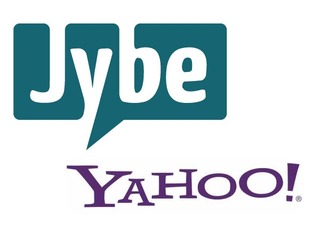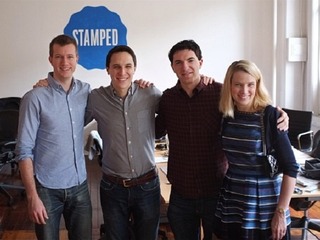
Yahoo buys PlayerScale - ninth startup in nine months
Maker of mobile gaming infrastructure becomes the latest find in Yahoo's acquisition spree

I can understand if you thought that Yahoo might want to take a break from what is becoming a pretty epic startup shopping spree after the company agreed to buy Tumblr for $1.1 billion earlier this week. But taking a break just isn't how Yahoo rolls these days, I guess.
Yahoo has now gone ahead and purchased its ninth startup in nine months; this time scooping up PlayerScale, which makes software infrastructure for cross-platform gaming.
No financial terms of the deal have been disclosed, but it looks as though Yahoo will be allowing PlayerScale to continue to operate independetly.
"Our goal has always been to help developers build the best possible games, without having to worry about building and scaling the infrastructure required to operate today’s biggest successes. In working with the folks at Yahoo!, it has become clear that we share this passion," PlayerScale CEO Jasper Jensen wrote in a note on the company's homepage Wednesday.
"With Yahoo!’s backing, we can crank out awesome products and improvements to our platform faster than ever before. We will continue to support our existing product and deliver new services to help you grow and manage your success in cross-platform gaming -- whether it’s casual, social or mobile."
Founded four years ago, the Belmont, California-based PlayerScale develops infrastructure software for cross-platform gaming, in order to give publishers and aggregators the ability to scale titles across casual, social and mobile platforms.
The PlayerScale software also incorporates a data analytics tool, which gives developers information that allows them to understand user behavior and track users and revenue across mobile and web-based properties. This then allows developers to increase their monetization and to more rapidly introduce new games into the market.
The company has over 150 million users across 4,000 titles from over 2,600 developers around the world.
"Today we acquired PlayerScale. The team has built an incredible gaming platform that is used by over 150 million players worldwide. We intend to continue to support and grow PlayerScale’s technology, and we look forward to building great new experiences on Yahoo! using the PlayerScale platform," a Yahoo spokesperson told VatorNews.
Yahoo's acquisition spree
As I said, this is Yahoo's ninth acquisition since October of last year, not including the massive Tumbl deal from earlier this week.
The first one was Stamped, the Justin Bieber-backed mobile app that lets users “stamp” and share their favorite restaurants, movies, books, and music, which was purchased in October; and OnTheAir, a video chat service that can be used for casual hangouts or to organize largish webinars
In February, Yahoo purchased location discovery app Alike, and then, earlier this month, Yahoo acqu-hired the team at personalized recommendation service Jybe, giving the company both a location service, and now a team with knowledge in personalized recommendations.
In March, the company bought news summarizer Summly and then it scooped up Astrid, a productivity app which helps people manage lists.
Most recently, the company bought real-time polling tool GoPollGo and frequent flier search startup MileWise on the same day.
(Image source: https://evansheline.com)
Related Companies, Investors, and Entrepreneurs
Alike, Inc.
Startup/Business
Joined Vator on
alike enables you to use the places you like to find new places you’ll love.
Keywords suck. First, they are too simplistic. When you search for a coffee shop a keyword based engine won’t know if you wanted the best java in town or a nearby place to crank out some emails. Second, they are too vague. Google returns 12,938 results for coffee shops in San Francisco. And finally, they are generic – with rankings based on popularity/SEO rather than relevance. None of the current options let you organize results to find what you really want.
The alike engine takes search beyond the keyword to solve this problem. Using alike anyone can simply enter the name of something they enjoy, alike will identify this ‘entity’, and then alike will provide the user with similar ‘entities’ that they will love.
The alike search engine has developed a semantic understanding of many different entities (places, products, people) and their attributes (locations, cost, reviews, preferences).
Related News


Yahoo buys Summly to take another step toward mobile

Marissa Mayer makes first acquisition as CEO

Yahoo purchases Alike to make good on mobile promise

Yahoo makes another acqui-hire: team from OnTheAir



